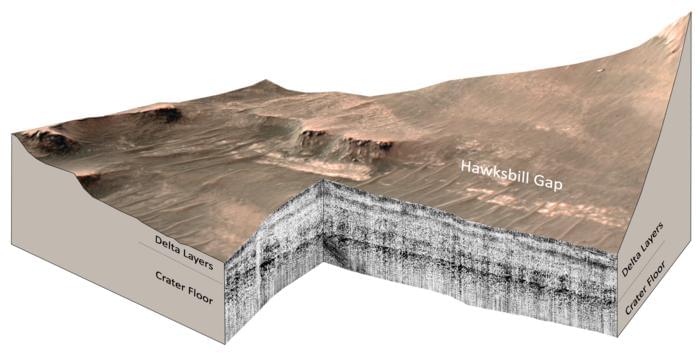“The changes we see preserved in the rock record are driven by large-scale changes in the Martian environment,” said Dr. David Paige. “It’s cool that we can see so much evidence of change in such a small geographic area, which allows us extend our findings to the scale of the entire crater.”
NASA’s Perseverance (Percy) rover has been exploring Jezero Crater on Mars since it landed there in February 2021. During that time, it has made some truly remarkable discoveries and helped us better understand the history of the Red Planet and whether it could have once supported life long ago. It has long been hypothesized that Jezero Crater was once home to a massive lake of liquid water billions of years ago, and a recent study published in Science Advances by the University of California, Los Angeles (UCLA) and the University of Oslo might have confirmed the most precise data to date regarding this hypothesis.
For the study, the researchers used the RIMFAX ground penetrating radar, which can take radar images up to 20 meters (65 feet) below Percy’s location, to analyze the geologic layers underneath the rover. These images gave researchers a first-time glimpse into the former crater floor that has been slowly buried over vast periods of geologic time.
What they found were geologic layers that are consistent with a former lake being present within Jezero Crater at some point deep in the Red Planet’s history. This included layers that indicated sediments from the flow of water having been deposited along with layers indicating erosion took place, with the latter occurring both before and after the deposits.
